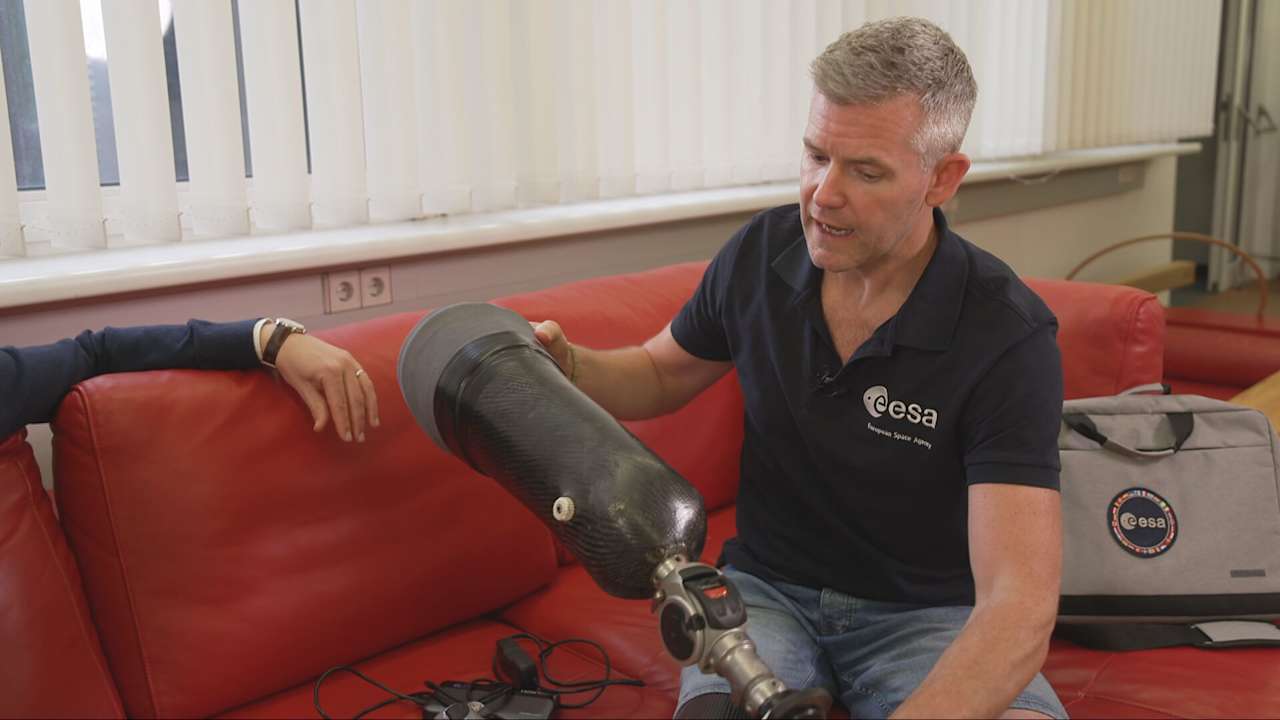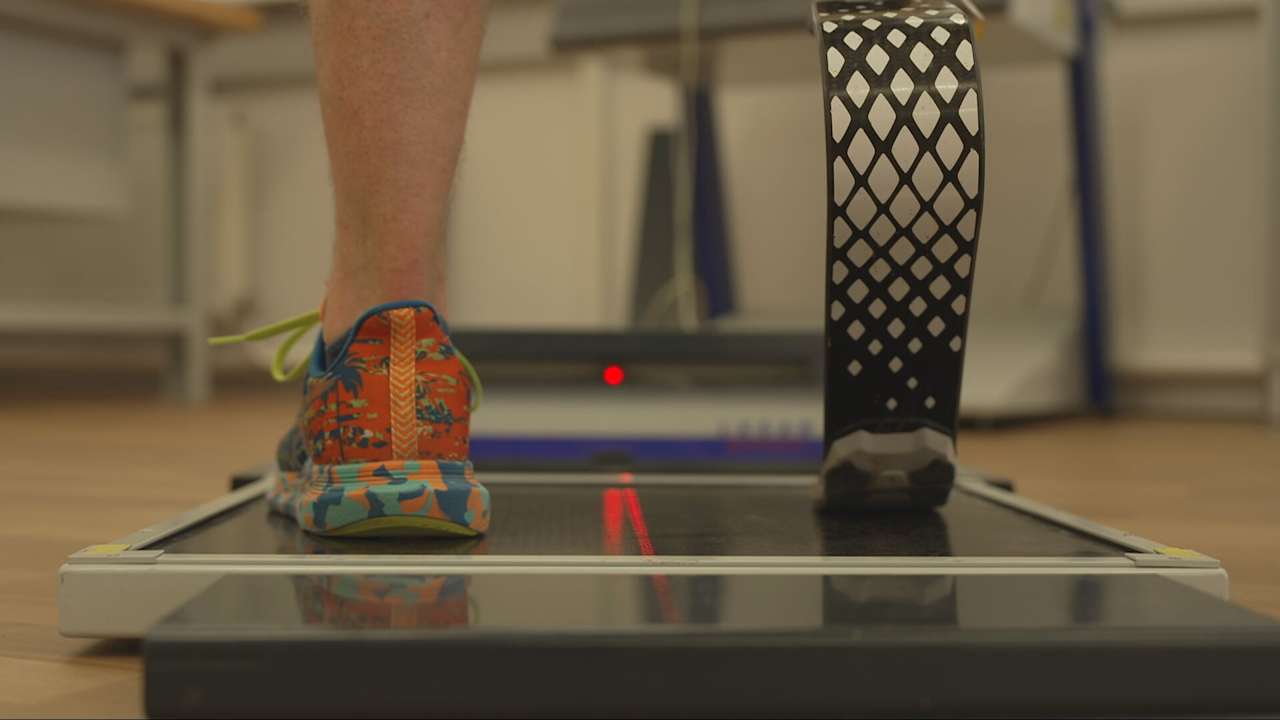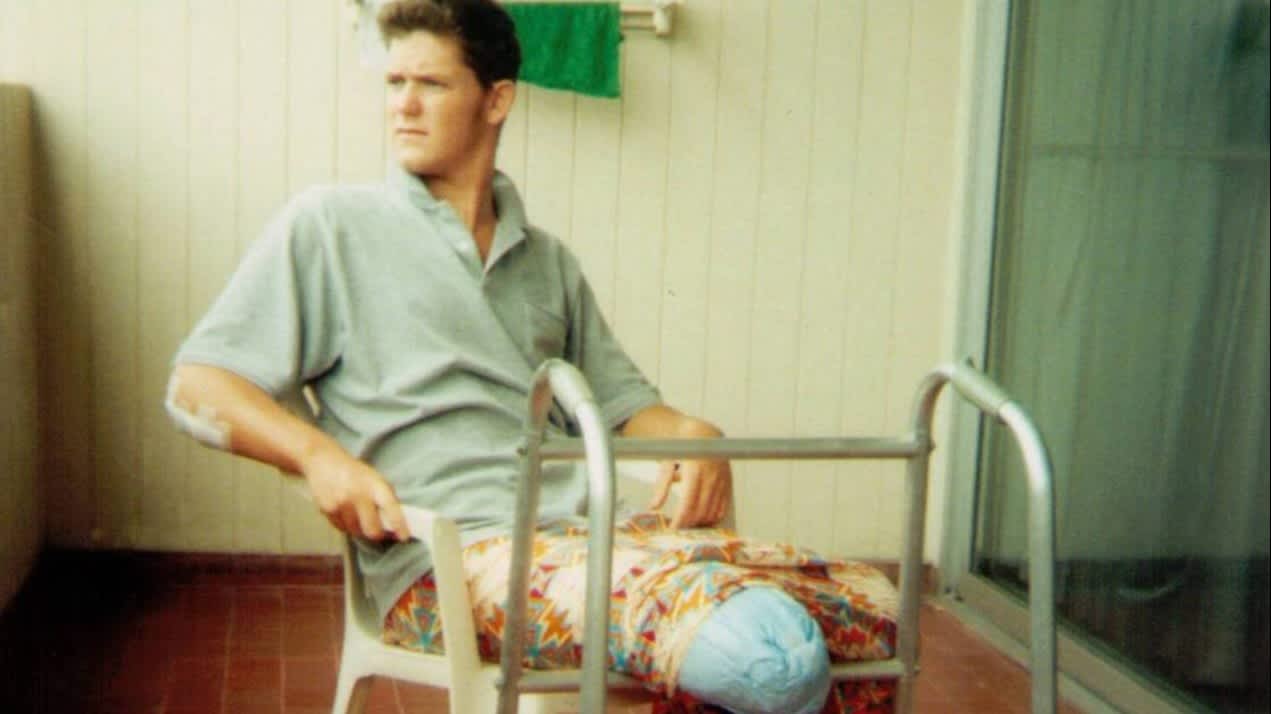John McFall, who lost his lower leg in a motorcycle accident, is now training to become the first ever disabled astronaut in space, as ITV News Science Correspondent Martin Stew reports
As a teenager backpacking in Asia, John McFall lost his lower right leg in a motorcycle accident.
A career as a surgeon and a paralympic bronze medal later, the 44-year-old is now training to become the first ever disabled astronaut in space.
After passing his fitness test earlier this year, Mr McFall is hoping to get on a European Space Agency flight. But first, he has to train at the Ottobock Lab in Austria to put his prosthetics through their paces.

“One of the questions we get asked all the time is: ‘Do you need legs in space?'” Mr McFall said.
“For some activities I do need to wear a prosthesis. So, for example, at launch I would need to wear a prosthesis inside the spacesuit to evacuate the launch power to get out of the spacecraft in an emergency at launch, but also I would need to wear a prosthesis to do exercise.”

It is important that his prosthetic leg works as well in space as it does on the ground, so that he can exercise to avoid muscle wastage.
After monitoring in the lab, Mr McFall tested the prosthetics on a microgravity flight.
The flight is known as the ‘vomit comet’ and recreates the conditions felt in space by dropping rapidly from a high altitude.
“It’s so hard to describe what microgravity feels like,” he told ITV News.
“I always say it’s a cross between free-falling and floating in water, but without this sort of sensory bombardment that you get on your skin from, from both of those circumstances.”
“It’s bizarre,” he said. “It’s really interesting and really fun.”
Scientists attach Mr McFall to a treadmill with bungee cords so that he can run while in microgravity and keep using his muscles.

Mr McFall hopes that his work sets an example for other people with disabilities.
He said: “One of the beautiful byproducts of this is demonstrating to people that individuals with physical disabilities can do tasks like this. They can work in professions like this.”
But he doesn’t want to be defined by his disability.
“I’m not a ‘para-dad’. I’m not a ‘para-surgeon’. If you’re a chef, are you a ‘para-chef’? I think that only contributes to the continual divide,” he said.
“So, if I get the opportunity to fly, I would be an astronaut just like any other astronaut. I just happen to be missing a bit of my leg.
“I don’t sit there and think, wow, look at this, I’m amazing, I’m blazing a trail here. That’s not me.”
Mr McFall is aiming for a spot on a European Space Agency flight as soon as next year, and to be the first amputee to live and work on the International Space Station.
He said: “For me, it encapsulates everything that I love about life, everything that interests me, everything that drives me. Working under pressure, working in teams.”
Follow STV News on WhatsApp
Scan the QR code on your mobile device for all the latest news from around the country





























